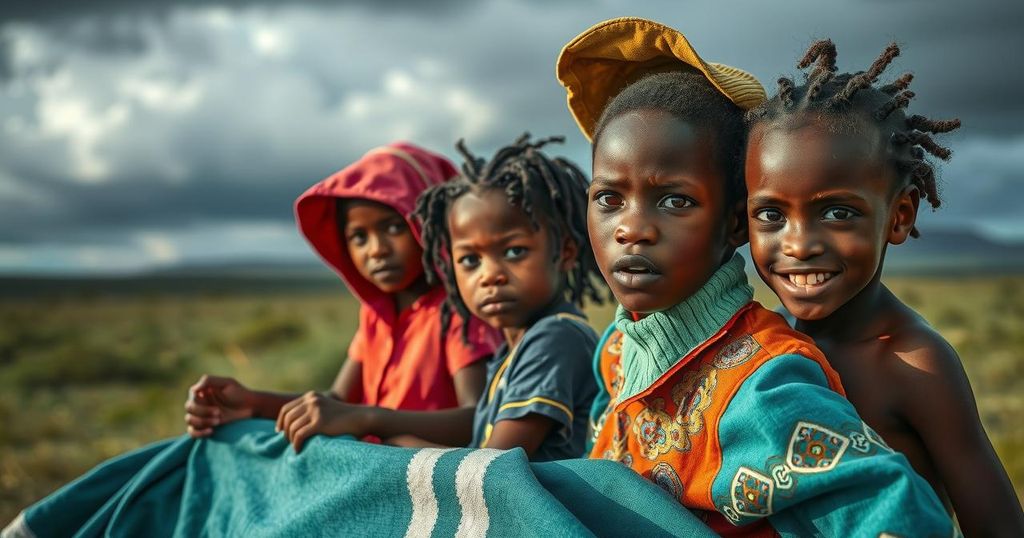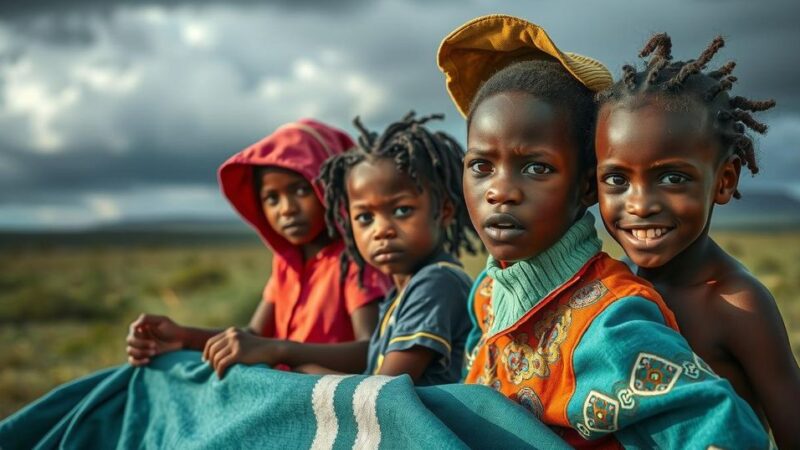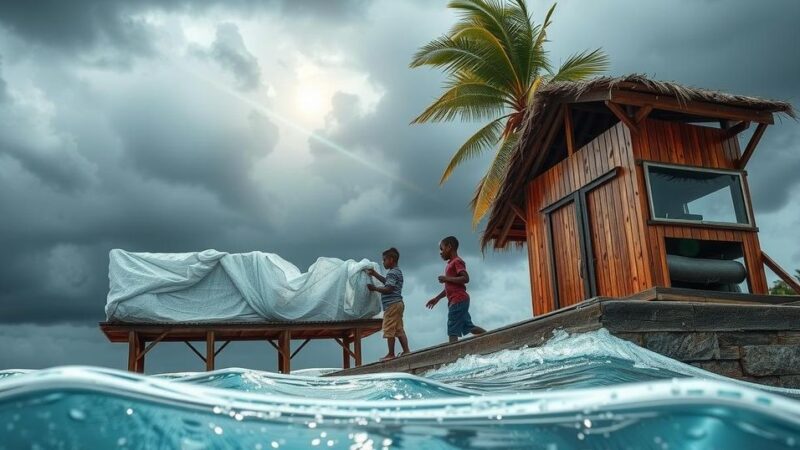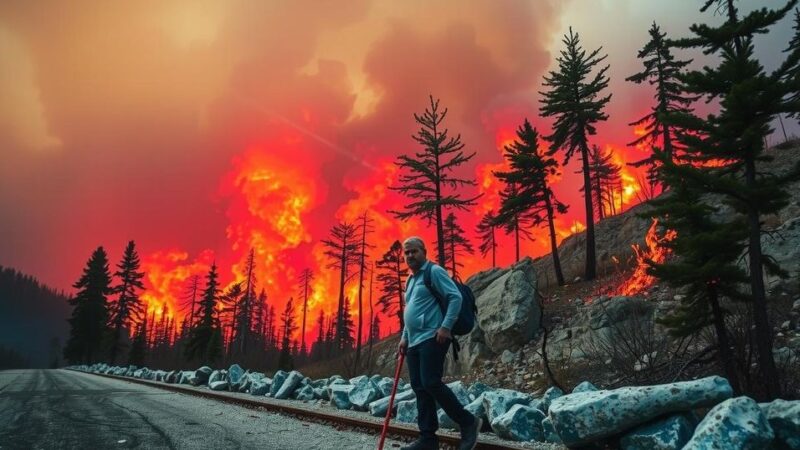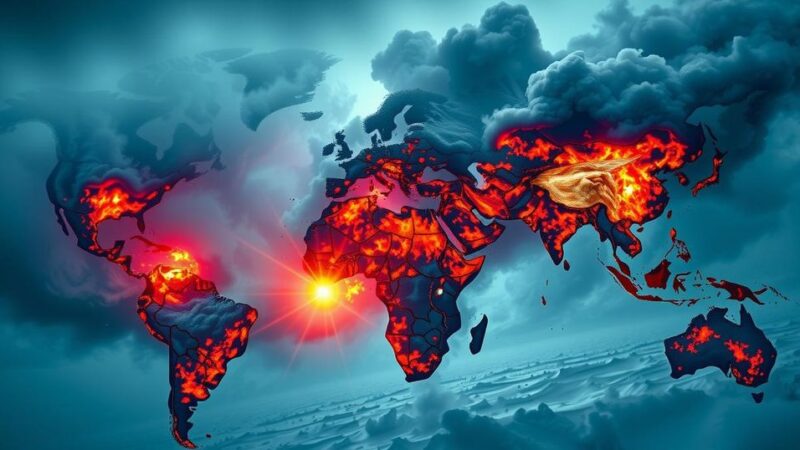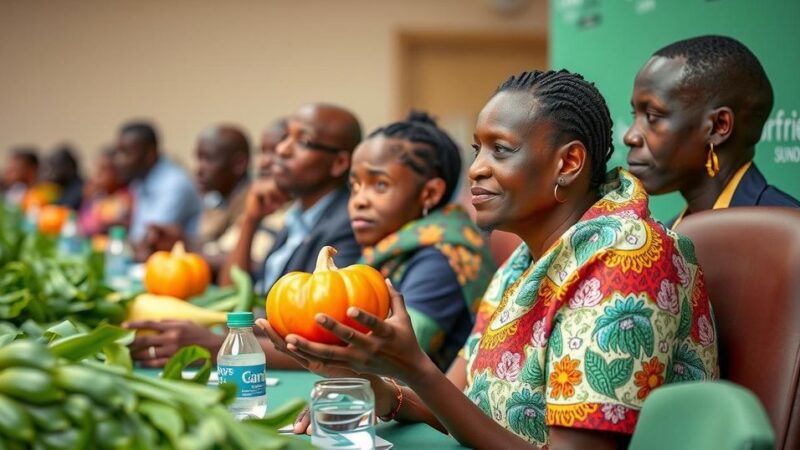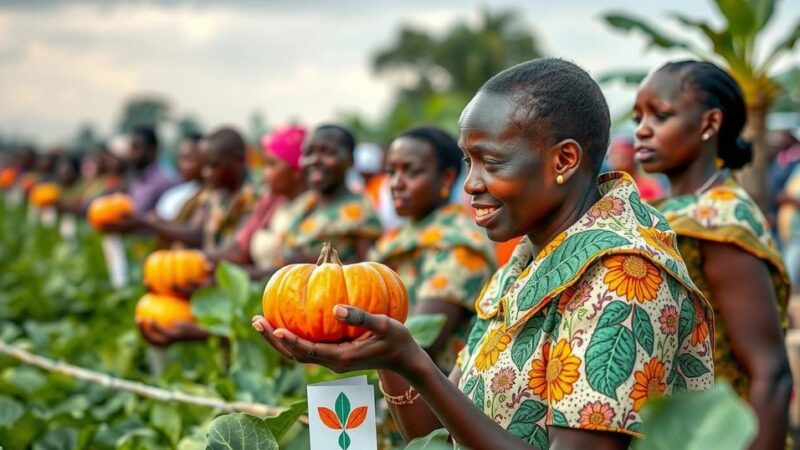Over 22,500 children in Northern Madagascar are at risk from Tropical Cyclone Dikeledi, prompting evacuations due to expected severe weather including strong winds and flooding. Save the Children warns that the frequency of such storms is increasing due to climate change, calling for enhanced aid from wealthier nations. Immediate humanitarian efforts are critical to mitigate potential humanitarian crises.
In Northern Madagascar, over 22,500 children are preparing for the potential devastation brought by Tropical Cyclone Dikeledi. Families are facing imminent threats from powerful winds, violent storms, and severe flooding, resulting in extensive evacuations, according to Save the Children. The meteorological department reports that heavy rainfall has already impacted the area, forecasting more to come alongside significant winds and storm surges from January 11 onward.
Following December’s Tropical Storm Chido, which tragically claimed 39 lives in nearby Mayotte, the region is now bracing for its second cyclone this season. Save the Children attributes the increasing frequency of extreme weather events like Dikeledi to the ongoing climate crisis, emphasizing the urgent need for higher-income countries to enhance their funding to assist lower-income nations facing climate-related challenges.
Tatiana Dasys, Country Representative for Madagascar at Save the Children, conveyed deep concern regarding the potential displacement of children due to the cyclone. “We are extremely concerned that more than 22,500 children living in areas expected to be hit by the cyclone are at risk of being displaced, losing their homes, school and possibly being injured or killed by falling objects or floods,” she stated.
Dasys highlighted that previous cyclones have led to extensive damage to residential areas and essential infrastructure, such as schools and hospitals, posing significant risks for communities. With precipitation anticipated to reach up to 100 mm in the next 48 hours, the likelihood of massive flooding in vulnerable regions is alarming.
Save the Children has proactively prepared by pre-positioning essential school supplies and strengthening community resilience, particularly at educational institutions. As the threat of loss of life looms, immediate humanitarian response and rescue operations are deemed vital. The organization urges wealthier nations to increase climate funding to support nations most affected by climate change.
Since 2016, Save the Children has been active in Madagascar, focusing on cash assistance and child protection initiatives, having responded to several humanitarian crises including droughts and tropical cyclones. In 2024, the organization’s programs reached over 12,700 children, showcasing their ongoing commitment to safeguarding vulnerable populations in the region.
Tropical Cyclone Dikeledi poses a serious threat to Northern Madagascar, marked by the experiences the region has had with severe storms in the past. With a history of cyclones causing significant loss of life and damage to infrastructure, the forecast of heavy rains and strong winds is particularly concerning. The increasing frequency of such weather events is closely tied to the broader implications of climate change, raising questions about the adequacy of support provided by wealthier nations to those most vulnerable to such disasters. Furthermore, humanitarian organizations like Save the Children are on the frontlines, providing crucial assistance and protection to affected populations, particularly children who are disproportionately impacted by this crisis.
In summary, Tropical Cyclone Dikeledi represents a critical threat to the well-being of thousands of children and families in Northern Madagascar. The already vulnerable population faces imminent dangers from severe weather, underscoring the urgent need for international aid and climate financing. Save the Children’s ongoing efforts to provide relief and prepare affected communities highlight the ongoing challenges faced by regions frequently impacted by extreme weather due to climate change. A strategic response involving increased funding from higher-income nations is essential to mitigate the adverse effects of such disasters and to support those who are the most affected.
Original Source: www.africa.com

